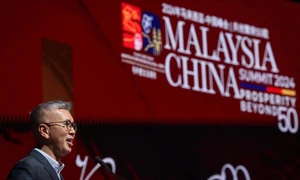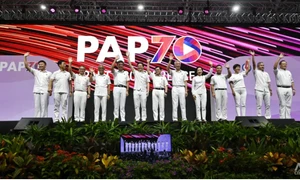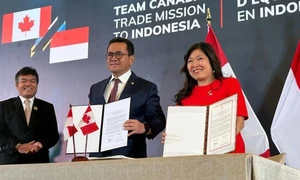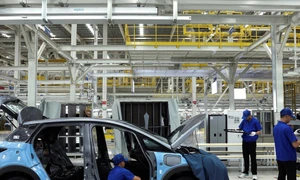Having a sense of purpose at work matters to people in Việt Nam, but not many are feeling a sense of fulfillment at work, a survey has found.
The report released recently by job platform Jobs_that_makesense Asia and global recruitment agency Manpower found 99 per cent of Vietnamese respondents saying meaning at work is important.

But only 11 per cent of respondents, the lowest in Southeast Asia, were “very satisfied” with the level of purpose in their current role, demonstrating a significant opportunity for organisations who want to set themselves apart in the tight talent market.
The “The Quest for Meaning at Work” report polled 2,023 participants in six key Southeast Asian countries, including 274 in Việt Nam, to define what meaningful work meant to today’s workforce.
When looking for a new job, salary and job stability were the top priorities for 40 per cent of Vietnamese.
A third of respondents placed a high value on career growth and personal growth while 26 per cent believed maintaining a positive work-life balance was becoming increasingly important for professional fulfilment.
The significance of a company's reputation, particularly in social responsibility, has become a critical factor for job seekers, with 85 per cent indicating that a company’s reputation for social responsibility influences their decision to apply there.
More than eight out of 10 agreed that advocacy for diversity, equity and inclusion (DEI) and other social causes (87 per cent), taking a leading role in advancing sustainability initiatives (64 per cent) and enhancing working conditions with flexible hours, comprehensive health insurance and equal pay (61 per cent) were actions organisations could take to enhance their meaning at work.
Limited availability of green and socially driven job opportunities (34 per cent), balancing personal responsibilities with professional aspirations (18 per cent) and lack of skills and experience (13 per cent) were the top three challenges in the quest for jobs with purpose.
ManpowerGroup’s regional manager for Southeast Asia, Simon Matthews, said he has observed a transformative shift in the attitudes and expectations of Vietnamese workers towards their employers, work environment and the nature of their jobs particularly over the past year.
“As we navigate a period of a profound change in the Vietnamese workforce’s perspectives, the importance of a company’s commitment to social and environmental responsibility becomes increasingly clear as a pivotal factor in employment decisions.
“For organisations aiming to attract and retain the finest local talent, it is crucial to not only prioritise ethical practices and sustainability initiatives but to also demonstrate these commitments actively through tangible actions.
“By fostering a culture that values ethical integrity and champions sustainability, businesses can position themselves not only as desirable workplaces but also as responsible contributors to society and the environment.” — VNS























